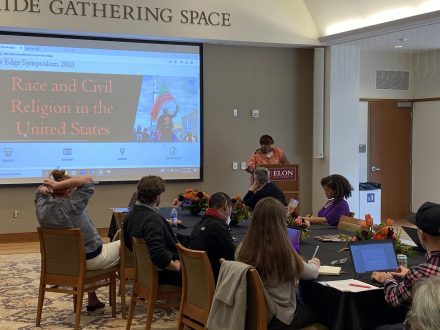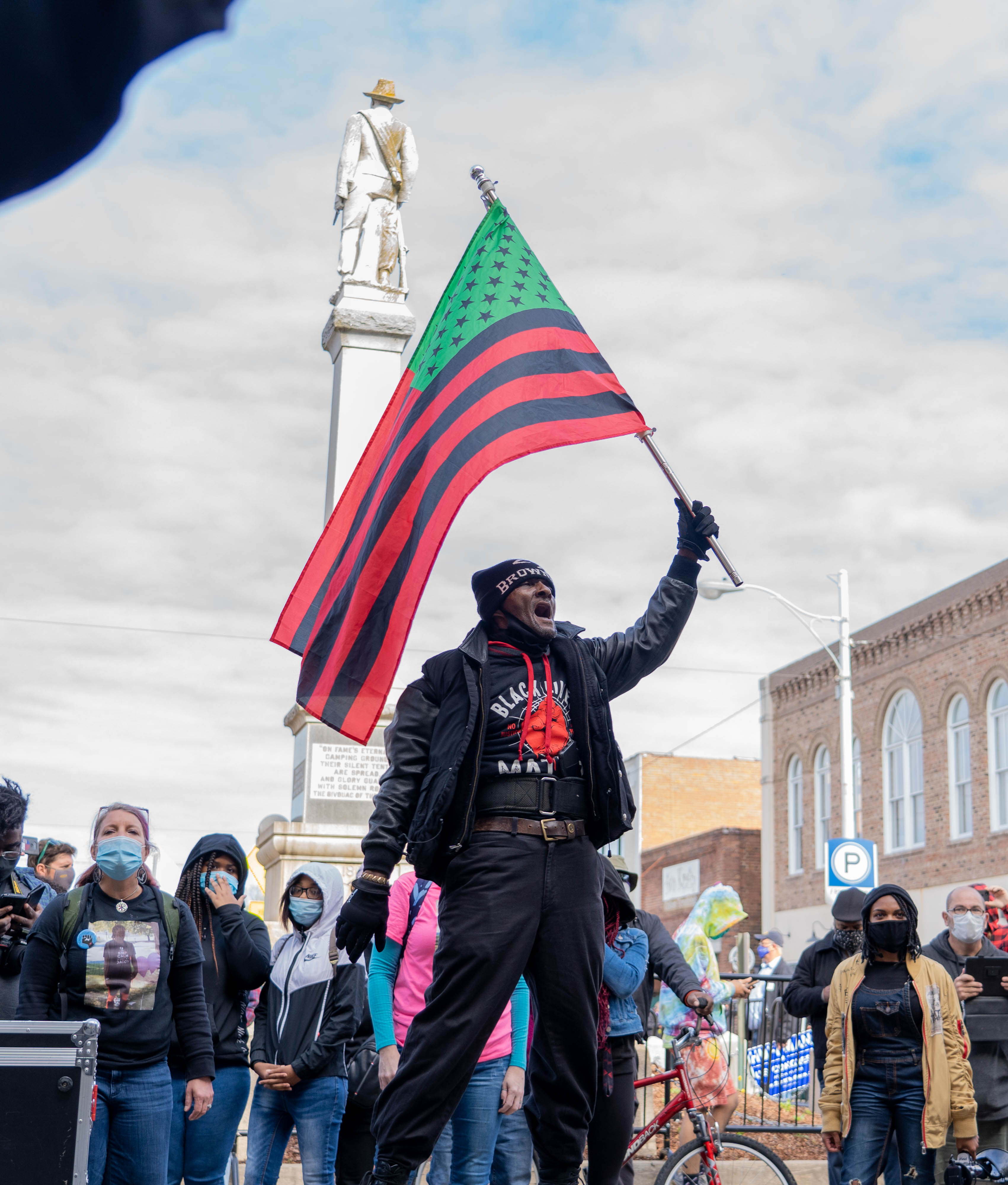Twelve scholars from across North America come together for the center’s fourth biennial symposium.
Scholars from the U.S. and Canada converged for the fourth biennial symposium hosted by Elon University’s Center for the Study of Religion, Culture, and Society, Feb. 9-11.
This year’s interdisciplinary symposium, “Civil Religion and Race in the United States,” explored the concept of civil religion. Presenters were invited to explore the ways that race and identity shape how individuals understand themselves in relation to the United States, as well as how Americans understand those situated beyond their own community.

Twelve scholars in a variety of fields including history, anthropology, textual studies, philosophy, political science and gender studies joined Elon faculty conveners Andrew Monteith (Religious Studies) and Jessica Carew (Political Science) to present current research on civil religion. Papers covered a range of topics, including the Black Lives Matter movement, modern American Jewish Zionism, civil religion in the American South and racialized conspiracy theories.
Monteith, an assistant professor of religious studies and Distinguished Emerging Scholar said he is proud to see the results of this year’s symposium.
“What we hoped to do with this symposium was to pull together scholars at all stages of their careers—grad students to provosts—and we were able to do that and engage in some really generative conversations,” Monteith said.
This year’s keynote presentation, “Racial States, Civil Religion, and the Future of American Democracy,” was presented by Sylvester A. Johnson, assistant vice provost for the humanities and executive director of the “Tech for Humanity” initiative at Virginia Tech. One of the nation’s leading historians of Black religion in North America, his lecture examined the conflict between religious nationalism and democratic principles in the U.S.
“All of our presenters did excellent work, but Johnson’s address stands as a good example of the kind of creative scholarship we were hoping people would bring, as well as an example of where studies of civil religion could go if we started thinking more intentionally about it,” Monteith said.
CSRCS Director Brian Pennington explained that this creative scholarship and interdisciplinarity are central to the symposium’s purpose. “Religious ideas and commitments are at the heart of the challenges of our day and they offer our most promising solutions. Interdisciplinary analysis that seeks a range of causes and outcomes is crucial to addressing the complex social problems we face,” Pennington said.
For more information visit the CSRCS website.



